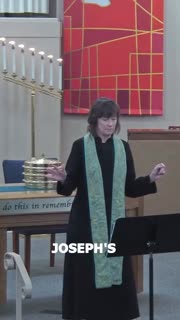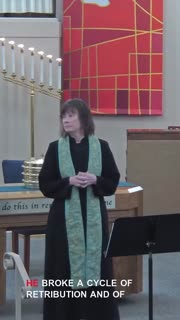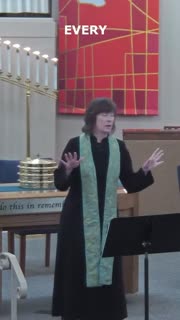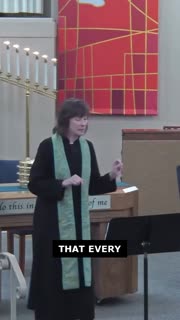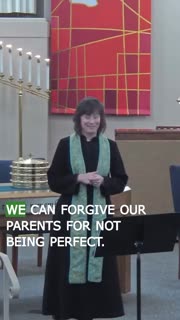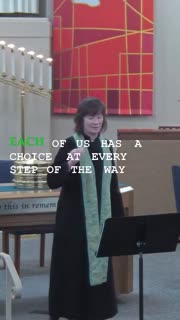Choosing Mercy: Lessons from Joseph's Journey
Devotional
Sermon Summary
Bible Study Guide
Sermon Clips
1. "Joseph's brothers were annoyed and jealous and kind of rightfully so, it sounds like. And it's understandable. Jacob was playing favorites. They were being pitted one against another by a parent who had some pretty serious shortcomings of his own. The brothers had seen the story before. They could see, they could see the handwriting on the wall. Reuben probably had the most to lose in all of this. He was the eldest son in most of everywhere. The eldest son is the one who inherits the most property. But something, something in him rung and he said, you know, that's not right." [13:36] (51 seconds)
2. "He broke a cycle of retribution and of violence and of vengeance and grudges. He knew they intended him harm, but he had been cared for. He had found his way by walking in God's path, doing the next right things in front of him, treating people fairly and nicely, mercy, and it worked out for him. He refused to repay evil with more evil. He repaid it with good." [16:17] (41 seconds)
3. "Every time I start talking about forgiveness, I have to stop and do a little bit of a disclaimer. Every time, and I will never not do this, this is not just blind forgive and forget. This is not a victim being told that they need to take their abuser, at their word, and take them right back and put themselves right back into the same power structures that were abusive in the first place. This is not the same thing. Joseph did not say, oh, you're my older brothers. You deserve more than me and give them everything that he owned. That's not what he did. He did not elevate people who had done him evil above himself. He did not become a doormat." [17:13] (48 seconds)
4. "When we remember that every person we meet and including the person in the mirror that we see each day is both beloved and broken. Some of us are so broken. Not one of us is perfect. We have all made wrong decisions. We have all fallen short and yet we are still all reflections of the divine. And we have choices. Each day we have choices. We can choose the better path. We can choose the kinder path. We can choose the more merciful path. Or we can choose divisiveness and anger and hatred and plotting." [19:05] (52 seconds)
5. "We can forgive our parents for not being perfect. We can forgive our kids for making dumb choices along the way. We can care for the person who is hungry or houseless or thirsty, no matter the cause of their issues. We can let go of pettiness and judgment. We can keep up with our calling, and divisiveness, and envy. We can choose to take a breath and bless the person in front of us. We can break the cycle. We can break the cycle. We may not know that it has any effect in the moment. It may feel like it's just, as Ecclesiastos would call it, vanity. Just in vain. But you don't know. No, you don't know how it's going to happen down the road." [22:40] (63 seconds)
6. "Each of us has a choice at every step of the way to choose kindness, to choose mercy, to choose the God path. We can break the cycle. And, yep, it's still challenging. Right up there with the whole selling your money in or selling everything you own and give the money to the poor part." [22:40] (30 seconds)
Ask a question about this sermon
2. "He broke a cycle of retribution and of violence and of vengeance and grudges. He knew they intended him harm, but he had been cared for. He had found his way by walking in God's path, doing the next right things in front of him, treating people fairly and nicely, mercy, and it worked out for him. He refused to repay evil with more evil. He repaid it with good." [16:17] (41 seconds)
3. "Every time I start talking about forgiveness, I have to stop and do a little bit of a disclaimer. Every time, and I will never not do this, this is not just blind forgive and forget. This is not a victim being told that they need to take their abuser, at their word, and take them right back and put themselves right back into the same power structures that were abusive in the first place. This is not the same thing. Joseph did not say, oh, you're my older brothers. You deserve more than me and give them everything that he owned. That's not what he did. He did not elevate people who had done him evil above himself. He did not become a doormat." [17:13] (48 seconds)
4. "When we remember that every person we meet and including the person in the mirror that we see each day is both beloved and broken. Some of us are so broken. Not one of us is perfect. We have all made wrong decisions. We have all fallen short and yet we are still all reflections of the divine. And we have choices. Each day we have choices. We can choose the better path. We can choose the kinder path. We can choose the more merciful path. Or we can choose divisiveness and anger and hatred and plotting." [19:05] (52 seconds)
5. "We can forgive our parents for not being perfect. We can forgive our kids for making dumb choices along the way. We can care for the person who is hungry or houseless or thirsty, no matter the cause of their issues. We can let go of pettiness and judgment. We can keep up with our calling, and divisiveness, and envy. We can choose to take a breath and bless the person in front of us. We can break the cycle. We can break the cycle. We may not know that it has any effect in the moment. It may feel like it's just, as Ecclesiastos would call it, vanity. Just in vain. But you don't know. No, you don't know how it's going to happen down the road." [22:40] (63 seconds)
6. "Each of us has a choice at every step of the way to choose kindness, to choose mercy, to choose the God path. We can break the cycle. And, yep, it's still challenging. Right up there with the whole selling your money in or selling everything you own and give the money to the poor part." [22:40] (30 seconds)
